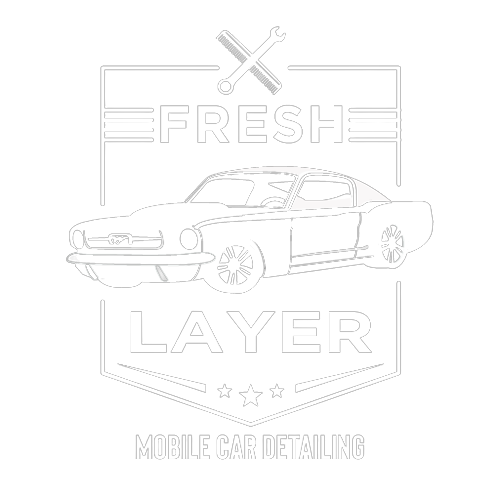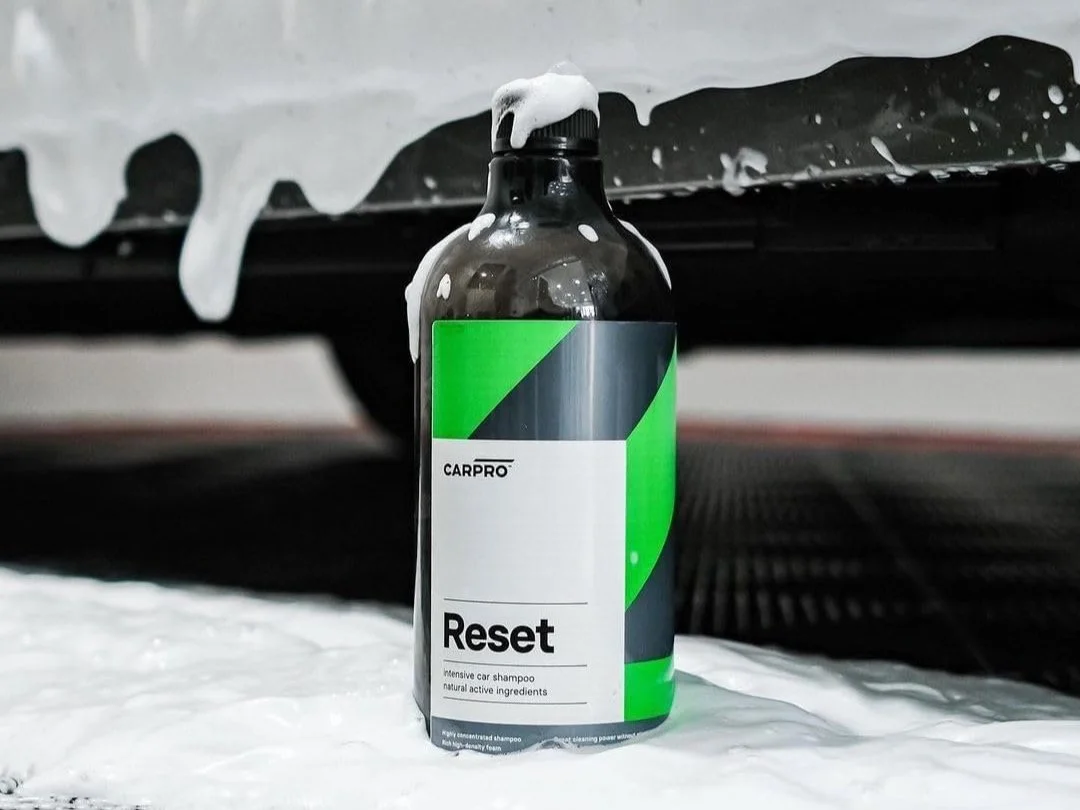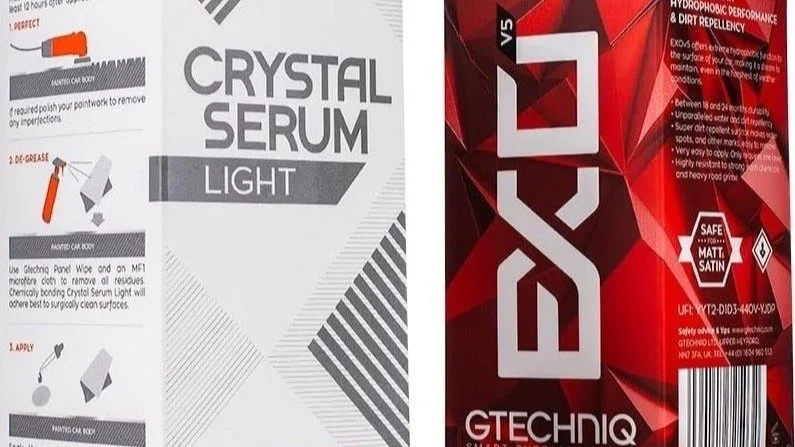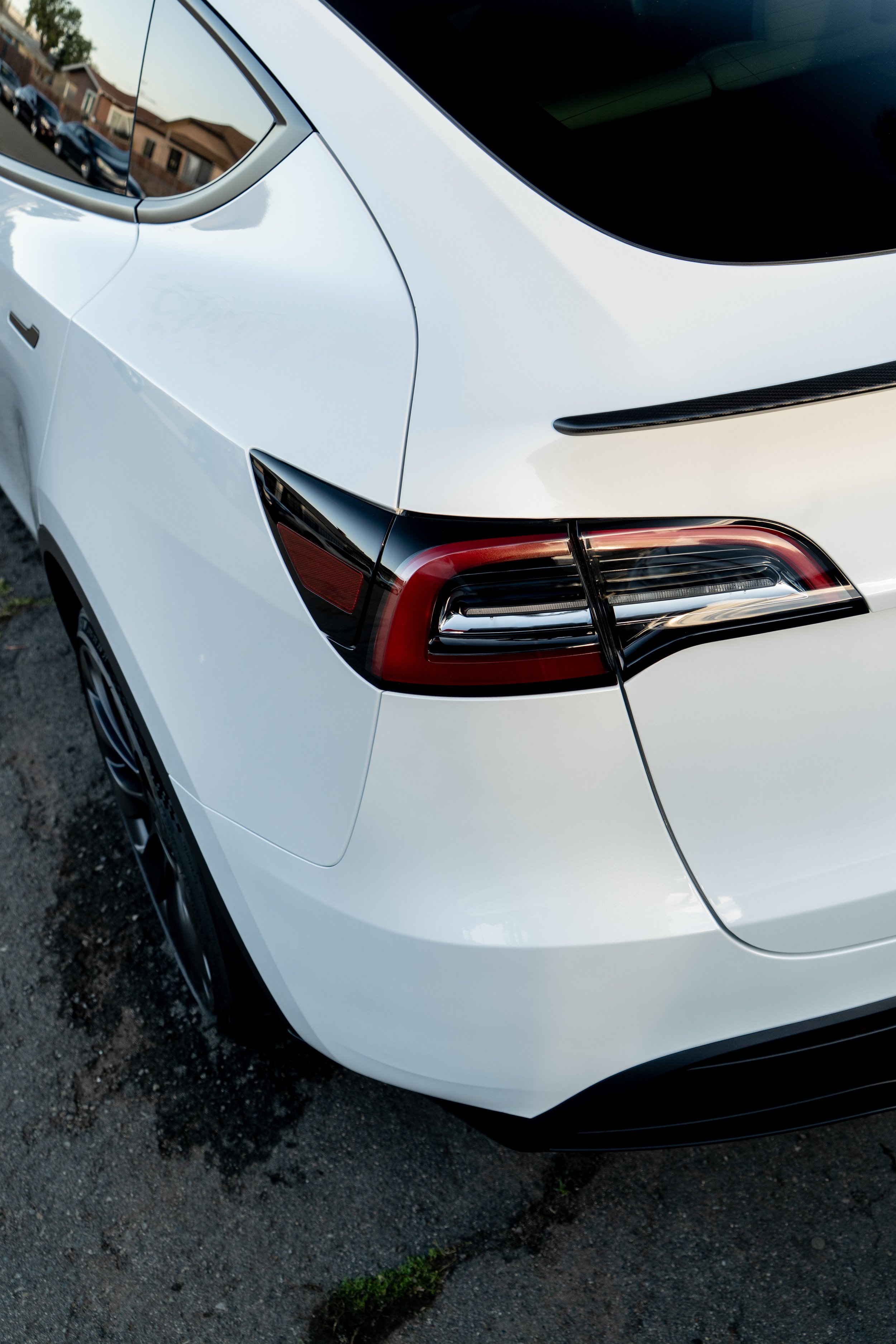What is Ceramic Coating? The Evolution of Vehicle Protection
If you're a car enthusiast or someone who takes pride in keeping your vehicle looking its best, you've probably heard of ceramic coating. But what exactly is it, and why is it gaining popularity among car owners worldwide?
Ceramic coating isn't just another marketing gimmick or fad—it's a revolutionary technology that provides lasting protection and a glossy finish to your car's exterior. With the right knowledge and application, ceramic coating can keep your car looking showroom-new for years to come.
In this ultimate guide, we will explore what ceramic coating is, how it works, its benefits, and whether it’s the right choice for you. We will also delve into the frequently asked questions about ceramic coatings and address misconceptions to help you make an informed decision. Let’s dive in and find out how you can protect your car like a pro!
san Diego Ceramic coating
What Is Ceramic Coating?
Ceramic Coating Explained: A Comprehensive Guide for Your Vehicle
Ceramic coating is a liquid polymer that is applied to the exterior surfaces of a vehicle to provide a durable protective layer.
The chemical composition of ceramic coating is primarily silicon dioxide (SiO2), which, when applied, bonds with the car's clear coat, creating a protective layer that is hydrophobic (water-repelling) and highly resistant to UV rays, chemicals, and minor scratches.
Unlike wax or traditional sealants, ceramic coating doesn’t simply sit on top of the paint. Instead, it forms a semi-permanent bond with the vehicle's surface, providing extended protection that can last for years—depending on how well it's maintained.
Typically, a professional-grade ceramic coating can last between 2 to 6 years, and even longer with proper upkeep.
How Does Ceramic Coating Work?
When applied to a car's exterior, ceramic coating forms a chemical bond with the factory paint, creating an extremely hard surface that repels water, dirt, and other contaminants.
The molecular structure of the coating makes it highly resistant to environmental factors that would normally degrade a vehicle's paint over time, such as UV rays, acidic bird droppings, and road salt.
Hydrophobic Properties: Water and liquids bead up and roll off, taking dirt with them, which makes cleaning easier and helps prevent the buildup of contaminants.
Scratch Resistance: While it won’t make your car completely scratch-proof, it does add a significant level of resistance against minor scratches and swirl marks.
UV Protection: Ceramic coating prevents oxidation caused by UV rays, which can lead to fading and dullness over time.
Why Is Ceramic Coating Important for My Vehicle?
Ceramic coating is a revolutionary product in vehicle care, providing a protective layer over your car's exterior. This coating is made from a chemical polymer solution that bonds with the paint of your car, creating a layer of protection.
It is renowned for its durability, offering a semi-permanent or permanent bond that does not wash away or break down easily.
Ceramic coatings repel water and provide UV protection, thereby preventing fading, oxidation, and damage from chemical stains.
Below are some of the many benefits you'll reap from applying a ceramic coating to your automobile, truck, motorcycle, RV, or any other painted vehicle.
Benefits of Ceramic Coatings
Superior Protection: Ceramic coatings provide a hard, durable layer that protects against UV rays, oxidation, chemical stains, and light scratches.
Enhanced Gloss and Depth: The smooth surface created by ceramic coatings enhances the vehicle's paint, resulting in a deeper, more lustrous appearance.
Hydrophobic Properties: Water beads and rolls off easily, taking dirt and grime with it, which keeps the vehicle cleaner for longer periods.
Chemical Resistance: Ceramic coatings resist acidic contaminants, reducing the risk of etching and staining.
Ease of Maintenance: Coated vehicles are easier to clean and maintain, requiring less frequent washing and detailing.
Long-lasting Protection: While traditional waxes may last a few months, high-quality ceramic coatings can provide protection for several years.
Now that you know why you should use a ceramic coating on your car, we can go through the different ways you can do it.
Ceramic sprays and do-it-yourself ceramic coating kits are great options if you don't want to spend a ton of money and enjoy working on projects alone. So, let's dissect this thing.
| Benefit | Description |
|---|---|
| Enhanced Gloss & Shine | Provides a deep, glossy finish that enhances the vehicle's appearance. |
| Long-Term Protection | Offers protection for up to five years, much longer than traditional waxing. |
| Ease of Cleaning | Hydrophobic properties make it easy to wash and maintain a clean car. |
| Chemical Resistance | Acts as a barrier against acidic contaminants like bird droppings and road salt. |
| UV Protection | Protects the paint from harmful UV rays, preventing oxidation and fading. |
| Cost Efficiency Over Time | Reduces the need for frequent waxing, ultimately saving money. |
The Science Behind Ceramic Coatings
The primary component of ceramic coatings is silicon dioxide (SiO2), often derived from quartz crystals or sand.
When applied to a vehicle's surface, these nano-particles create a smooth, hydrophobic layer that repels water, dirt, and other contaminants.
According to a study published in the Journal of Coatings Technology and Research, ceramic coatings with high SiO2 content can significantly improve scratch resistance and gloss retention.
| Feature | Ceramic Coating | Waxing |
|---|---|---|
| Durability | 2-5 years | 3-6 months |
| Protection Level | High (UV, chemicals) | Moderate |
| Cost | Higher upfront cost | Lower initial cost |
| Maintenance Requirements | Low (regular washing) | Frequent reapplication |
| Finish Quality | Glossy, showroom look | Shiny, but less durable |
A. Enhanced Gloss and Shine
One of the most noticeable benefits of ceramic coating is the deep, glossy finish it provides.
The high level of gloss adds an incredible depth to the paint, making your vehicle look like it's just rolled off the showroom floor.
B. Long-Term Protection
Ceramic coating provides protection that lasts much longer compared to traditional waxing.
With professional-grade ceramic coatings, you can expect your car to remain protected for up to five years with proper maintenance.
This extended protection makes ceramic coating a worthwhile investment for many car owners.
C. Ease of Cleaning
Thanks to its hydrophobic properties, ceramic coating ensures that water and other liquids bead up and slide off the car's surface, reducing the chances of water spots and dirt adhering to the paint.
This makes cleaning your car much easier, as grime and dust don’t stick as stubbornly.
D. Chemical Resistance
The coating provides a robust resistance to chemical stains, such as those caused by acidic bird droppings, bug splatter, and road salt.
It acts as a sacrificial layer, keeping contaminants from reaching your car’s paint and causing long-term damage.
E. Protection Against UV Rays
If you live in a sunny climate, the UV protection offered by ceramic coating is invaluable. UV rays can cause your car's paint to oxidize and fade over time. Original color and luster.
F. Cost Efficiency Over Time
While the upfront cost of ceramic coating might seem steep compared to regular waxing, it actually saves money over time.
By eliminating the need for frequent waxing and offering protection that extends the life of your paint, ceramic coating proves to be a cost-efficient choice in the long run.
Types of Ceramic Coatings
Consumer-Grade Coatings
These are DIY products available for purchase by the general public. While more accessible, they typically offer less durability and protection compared to professional-grade options.
Professional-Grade Coatings
Applied by certified professionals, these coatings offer superior durability and performance. They often require specific environmental conditions and expert application techniques for optimal results.
Hybrid Coatings
These products combine ceramic technology with other protective elements, such as graphene, to enhance specific properties like scratch resistance or slickness.
The Application Process
Proper application is crucial for maximizing the benefits of ceramic coatings. The process typically involves:
Thorough Cleaning: The vehicle must be completely free of contaminants.
Clay Bar Treatment: This step removes embedded contaminants from the paint surface.
Paint Correction: Any imperfections in the paint are addressed before coating application.
Surface Preparation: The surface is decontaminated with specialized products to ensure proper bonding.
Coating Application: The ceramic coating is carefully applied in a controlled environment.
Curing: The coating needs time to cure, typically 24-48 hours, during which the vehicle must be protected from the elements.
Longevity and Maintenance
The durability of ceramic coatings can vary significantly based on the product quality, application process, and maintenance. High-quality, professionally applied coatings can last up to 5 years or more with proper care.
Ceramic Coating Application: Professional vs. DIY
When considering ceramic coating, you have two main application options: professional application or DIY kits.
Each method comes with its own set of pros and cons, tailored to fit different needs and preferences.
Professional Application:
Opting for professional application ensures that the job is done correctly with high-grade materials.
Professionals have the expertise and equipment to apply the coating evenly, ensuring maximum durability and protection. While this option might be more costly upfront, it saves time and potentially avoids the pitfalls of an incorrect DIY application.
DIY Application:
DIY kits offer a more affordable solution for those who prefer a hands-on approach. With advancements in technology, many DIY ceramic coatings provide excellent results if applied carefully and correctly.
It's crucial to follow the manufacturer's instructions precisely and to prepare the vehicle's surface thoroughly before application.
| Feature | Ceramic Coating | Traditional Wax | Paint Sealant |
|---|---|---|---|
| Durability | 2-5+ years | 1-3 months | 6-12 months |
| Chemical Resistance | High | Low | Moderate |
| UV Protection | Excellent | Good | Good |
| Ease of Application | Professional | DIY | DIY/Professional |
| Cost | Higher initial investment | Low | Moderate |
The Price of Ceramic Coating and How Much It Can Cost Professionally
So, let's say you decide to invest in a skilled ceramic coating with a predicted lifespan of 6 years.
At the top end, the price breaks down to around $358 per year when spread out over seven years ($2,500). Spending $2500.00 on something that will slowly disintegrate before your eyes seems like a waste.
Perhaps you think that $358 is a reasonable price. Compare the cost of an expert coating with that of a do-it-yourself kit or ceramic spray, and you'll see a vast disparity.
Ceramic Coating vs. Paint Protection Film (PPF)
Comparative Graph: Ceramic Coating vs. PPF Protection
This graph shows how Ceramic Coating and PPF compare in terms of protection against different factors, including UV rays, rock chips, minor scratches, and chemical contaminants. Ceramic Coating excels in UV and chemical protection, while PPF provides better coverage against physical impacts.
A. Key Differences
Ceramic Coating and Paint Protection Film (PPF) are often confused, but they serve different purposes:
Ceramic Coating: Adds a layer of chemical protection and enhances gloss. It helps with hydrophobicity and makes the car easier to clean but is not as effective against larger impacts.
PPF: Paint Protection Film is a thicker, clear film applied to vulnerable parts of your car. It provides protection against rock chips, scratches, and other physical damage.
B. Which One Should You Choose?
If you’re looking for protection against minor scratches and improved ease of cleaning, ceramic coating is the way to go.
If you drive on roads with loose gravel or are concerned about rock chips and more significant damage, PPF may be the better option.
The Future of Ceramic Coatings
The ceramic coating market is experiencing rapid growth and innovation. According to a report by Grand View Research, the global automotive ceramic coating market size is expected to reach $2.7 billion by 2028, growing at a CAGR of 9.8% from 2021 to 2028.
Emerging trends include:
Integration of self-healing properties
Enhanced environmental sustainability
Improved scratch resistance through nanotechnology
Maintaining Your Ceramic Coated Vehicle
Maintaining a ceramic-coated vehicle is straightforward but requires consistent care to ensure its longevity.
Regular washing with pH-neutral car shampoo, avoiding abrasive cleaning tools, and applying a ceramic boost spray every few months can keep your coating in top condition.
It's also advisable to avoid automatic car washes that use abrasive brushes.
Choosing the Right Ceramic Coating
When selecting a ceramic coating for your vehicle, consider:
Professional vs. DIY Application: Assess your skill level and the complexity of the product.
Durability Requirements: Determine how long you need the protection to last.
Specific Benefits: Some coatings excel in particular areas like scratch resistance or gloss enhancement.
Budget: Balance the initial cost against long-term value and protection.
Warranty: Many professional-grade coatings come with warranties, providing added peace of mind.
Frequently Asked Questions About Ceramic Coating
-
Yes, ceramic coating is generally better than waxing in terms of longevity, durability, and protection. While wax provides a good shine and some protection, it needs to be reapplied every 3-6 months, whereas ceramic coating lasts for years.
-
While there are DIY ceramic coating kits available, applying ceramic coating requires a meticulous process and a dust-free environment. If you’re not experienced, DIY application can lead to uneven coverage, streaks, and other imperfections. Professional application ensures optimal results, which is why many car owners opt for it.
-
No, ceramic coating is not a magic shield that makes your car impervious to scratches. It does, however, provide enhanced resistance to minor scratches and swirl marks. Using proper washing techniques and avoiding abrasive tools are still crucial for maintaining your car's surface.
-
The cost of ceramic coating varies depending on several factors, including vehicle size, coating brand, and professional fees. On average, you can expect to pay between $500 to $2000 for a professional-grade ceramic coating application. DIY kits, on the other hand, can range from $50 to $150.
-
Maintenance is essential for prolonging the life of the coating. Regular washing with pH-neutral car shampoo and avoiding harsh chemicals will help keep the coating effective. You should also refrain from using automated car washeswith abrasive brushes.
Best Ceramic Coating Options in 2024
The market offers a variety of ceramic coating products, each with unique features and benefits.
When choosing the best ceramic coating for 2024, consider factors such as longevity, ease of application, and the level of protection it offers.
Reputable brands often provide detailed instructions and customer support, ensuring a successful application and lasting results.
Myths and Misconceptions About Ceramic Coating
A. "Ceramic Coating Makes Your Car Bulletproof"
This is one of the most common myths. While ceramic coating is highly protective, it does not make your car invincible to all damage. It’s essential to continue with proper maintenance and use correct washing methods.
B. "You Don’t Need to Wash Your Car After Coating"
Many believe that ceramic coating makes washing obsolete. In reality, ceramic coating only makes your car easier to clean; it doesn’t eliminate the need for regular maintenance.
C. "Ceramic Coating Will Fill Paint Scratches"
Ceramic coating does not fill in deep scratches or eliminate existing damage. Any imperfections on the surface need to be corrected before applying the coating to achieve a flawless finish.
Conclusion: Is Ceramic Coating Right for Your Vehicle?
Ceramic coatings represent a significant advancement in vehicle protection technology. While they require a higher initial investment and professional application, the long-term benefits in terms of protection, appearance, and ease of maintenance make them an attractive option for many vehicle owners.
As with any automotive care decision, it's essential to weigh the pros and cons, consider your specific needs, and consult with professional detailers to determine if ceramic coating is the right choice for your vehicle.
Ready to explore ceramic coating options for your vehicle? Contact Fresh Layer Mobile Detailing for expert advice and professional application services.















